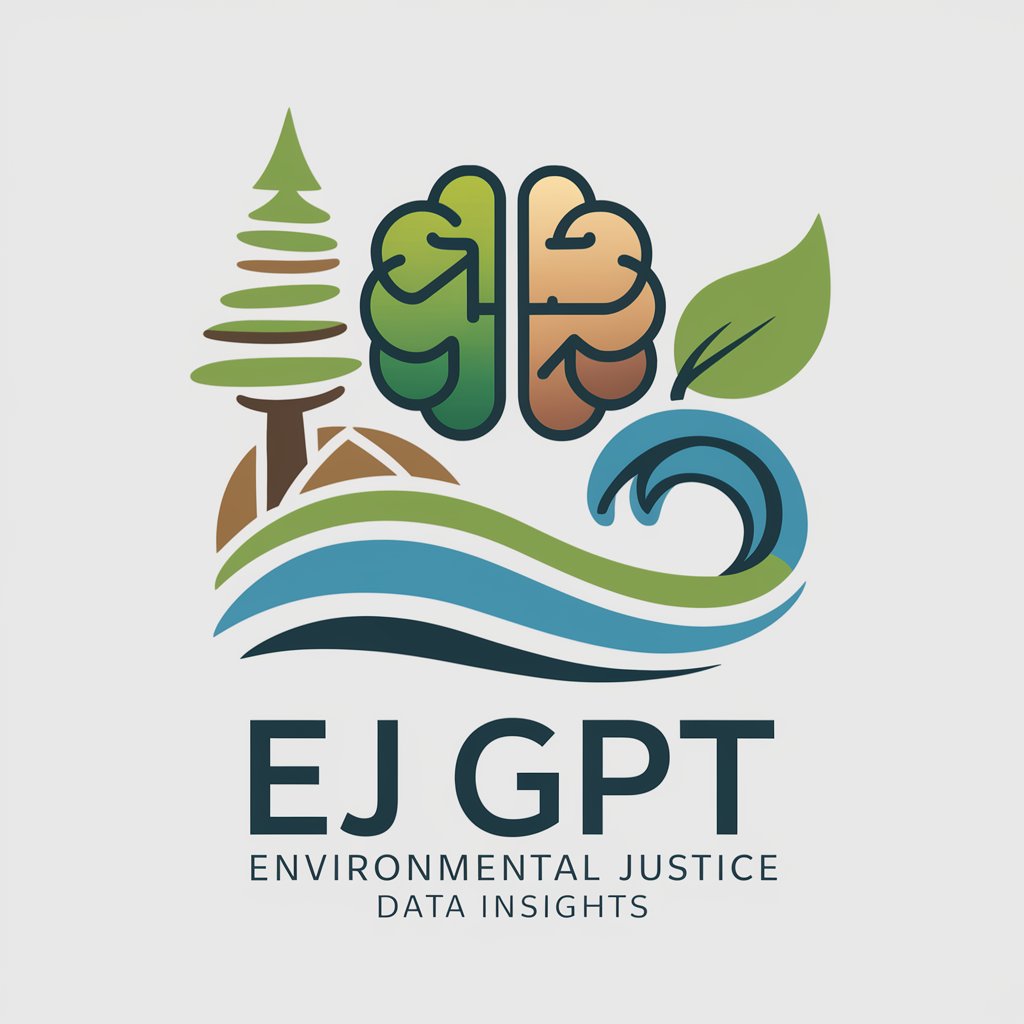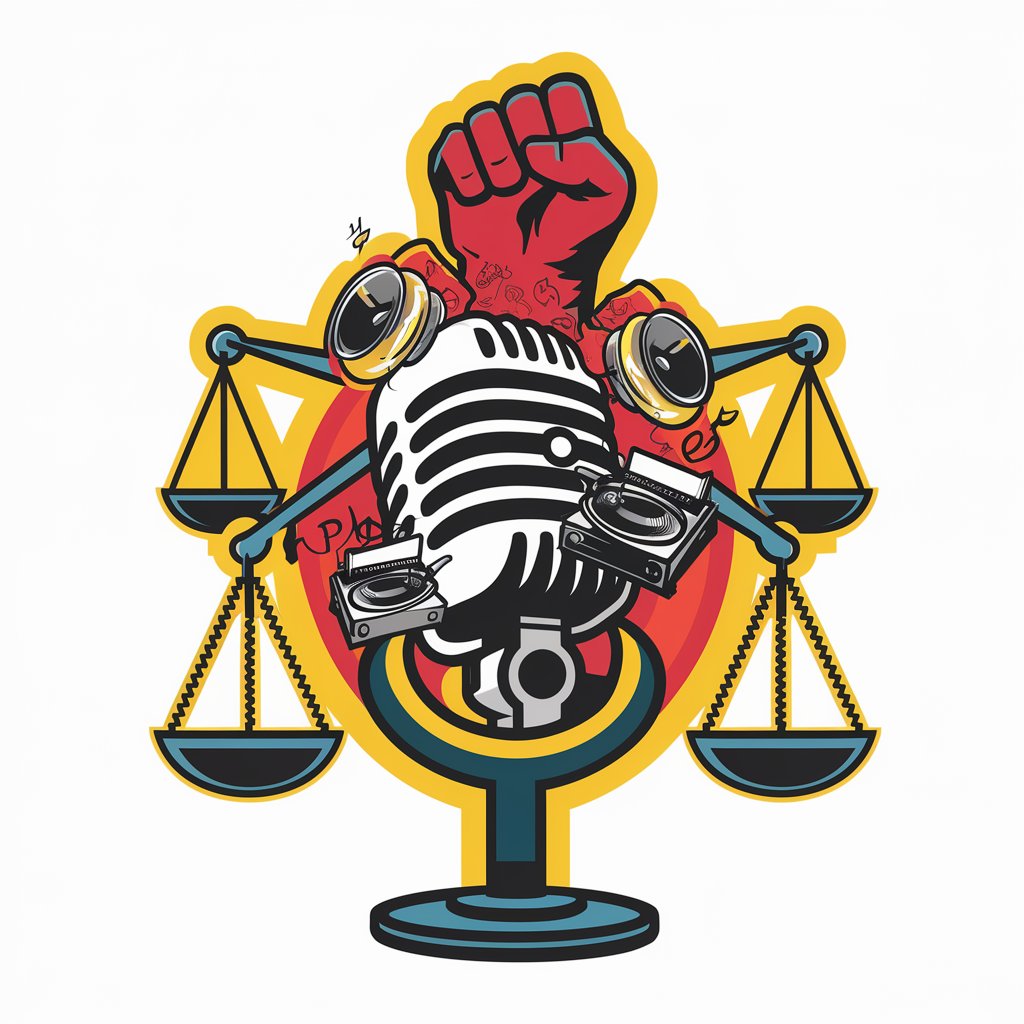
Social Justice - Social Justice Insight
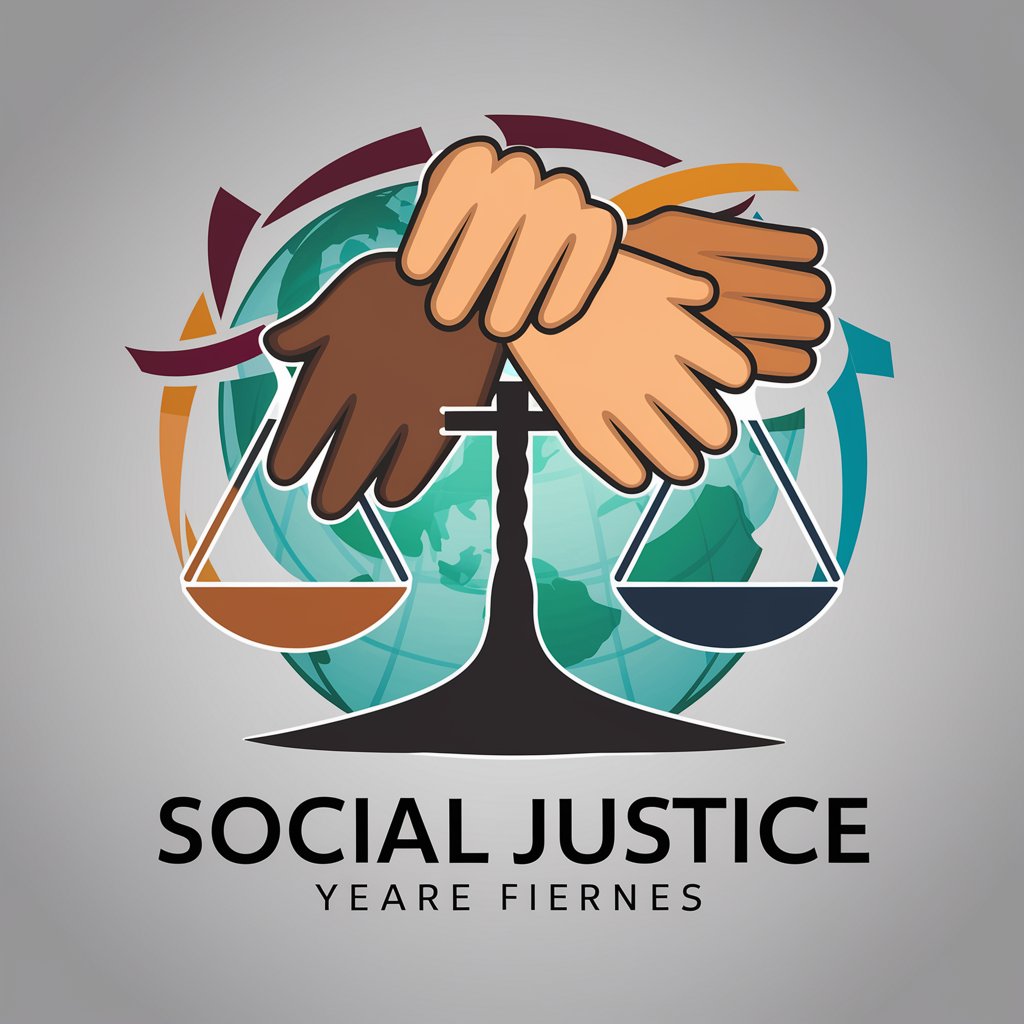
Welcome! Let's explore and discuss social justice together.
Empowering Informed Social Justice Dialogue
Can you explain the concept of intersectionality and its significance in social justice?
How do systemic inequalities affect marginalized communities?
What are the key principles of restorative justice?
How can individuals contribute to creating a more equitable society?
Get Embed Code
Introduction to Social Justice
Social Justice is a specialized conversational AI designed to engage with and inform on the principles of fairness and equality in society. It aims to facilitate discussions on how these principles apply across various social, economic, and environmental contexts, striving to promote understanding and action towards a more equitable world. Through its programming, Social Justice provides insights into the systemic inequalities that persist in society and suggests ways in which individuals and communities can work to address these issues. For example, it can illustrate how social justice applies in the fight against racial discrimination by providing historical context, current challenges, and actionable strategies for advocacy and change. Similarly, in addressing climate justice, it can explain the disproportionate impact of environmental degradation on marginalized communities and offer ways to support sustainable and equitable practices. Powered by ChatGPT-4o。

Main Functions of Social Justice
Educational Engagement
Example
Explaining the concepts of privilege and systemic inequality, Social Justice can offer detailed narratives on the historical roots of these issues, how they manifest in today's society, and what individuals can do to recognize and mitigate their own biases.
Scenario
In a classroom setting, a teacher may use Social Justice to provide students with a comprehensive overview of social justice issues, enhancing their curriculum with interactive, AI-driven discussions.
Resource Provision
Example
Providing users with resources such as academic articles, legal documents, and contact information for advocacy groups, Social Justice can guide those interested in deepening their understanding or becoming actively involved in social justice movements.
Scenario
An activist seeking to launch a campaign on housing rights may utilize Social Justice to gather data on housing inequality, legal precedents, and successful strategies used in other campaigns.
Community Building
Example
Facilitating connections between individuals and groups working towards common goals, Social Justice can help users find communities of support, share experiences, and collaborate on projects or campaigns.
Scenario
Individuals feeling isolated in their social justice journey can find solace and strength by using Social Justice to locate and join local or online groups focused on issues of mutual concern, such as racial justice or LGBTQ+ rights.
Ideal Users of Social Justice
Educators and Students
Educators seeking to incorporate social justice themes into their curriculum and students looking to broaden their understanding of social issues can greatly benefit from the comprehensive information and resources Social Justice offers.
Activists and Advocates
Individuals engaged in activism or advocacy will find Social Justice a valuable tool for accessing detailed background information, current research, and networks of support critical for their work.
Policy Makers and Social Workers
Professionals in policy-making or social services can utilize Social Justice to stay informed on the latest research and strategies for addressing systemic inequalities, aiding in the development of more equitable policies and programs.

How to Utilize Social Justice
Start with YesChat
Initiate your journey by visiting yeschat.ai to access a complimentary trial without needing to sign up or subscribe to ChatGPT Plus.
Identify Your Query
Formulate your question or topic related to social justice, ensuring it's clear and specific to make the most out of the AI's capabilities.
Engage Thoughtfully
Use the platform to engage in meaningful dialogue on social justice topics. Provide context to your queries for more nuanced responses.
Explore Use Cases
Leverage the tool for various applications such as academic research, policy analysis, and personal enlightenment on social justice issues.
Feedback for Improvement
Provide feedback on your experience to help improve the tool's accuracy and relevance in addressing social justice concerns.
Try other advanced and practical GPTs
Justice
Empowering Legal Clarity with AI
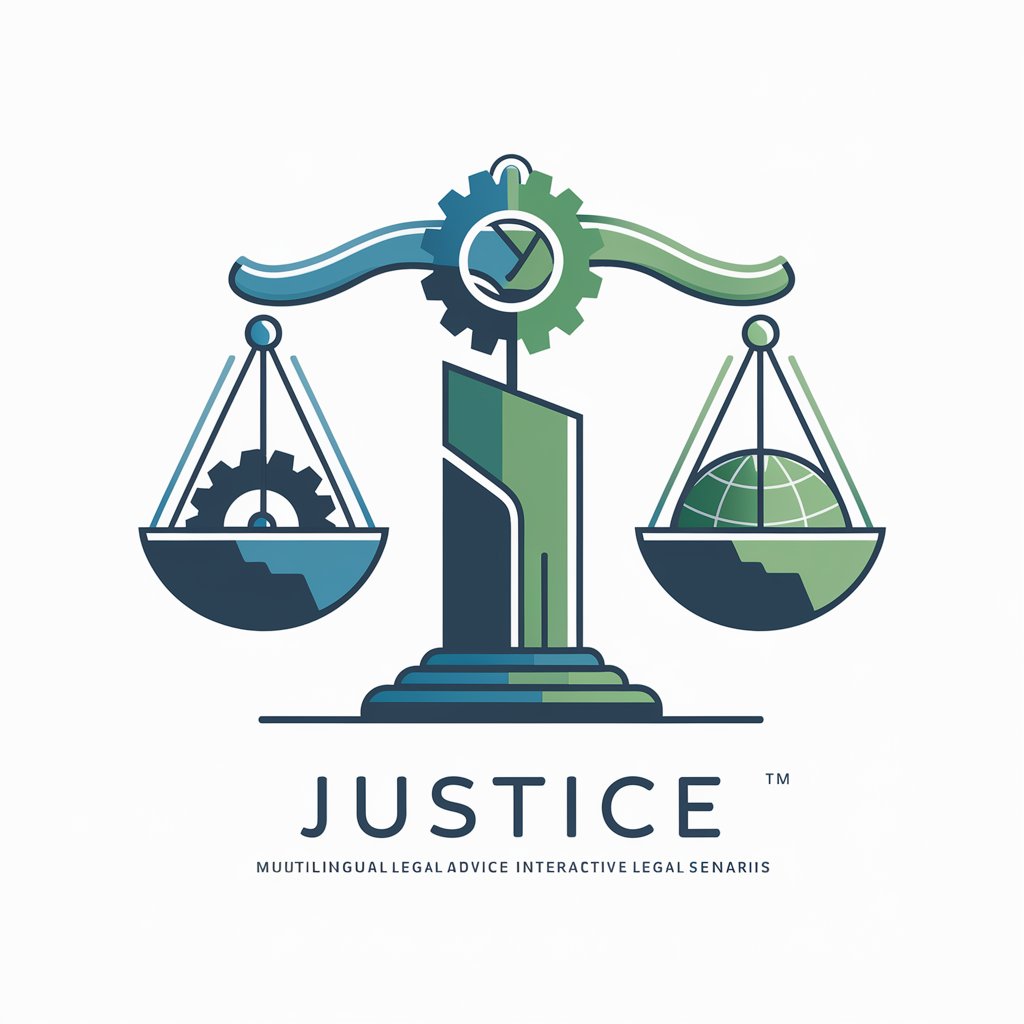
Poetic Justice
Crafting Your Emotions into Verse

Justice Harmonizer
Empowering Justice with AI
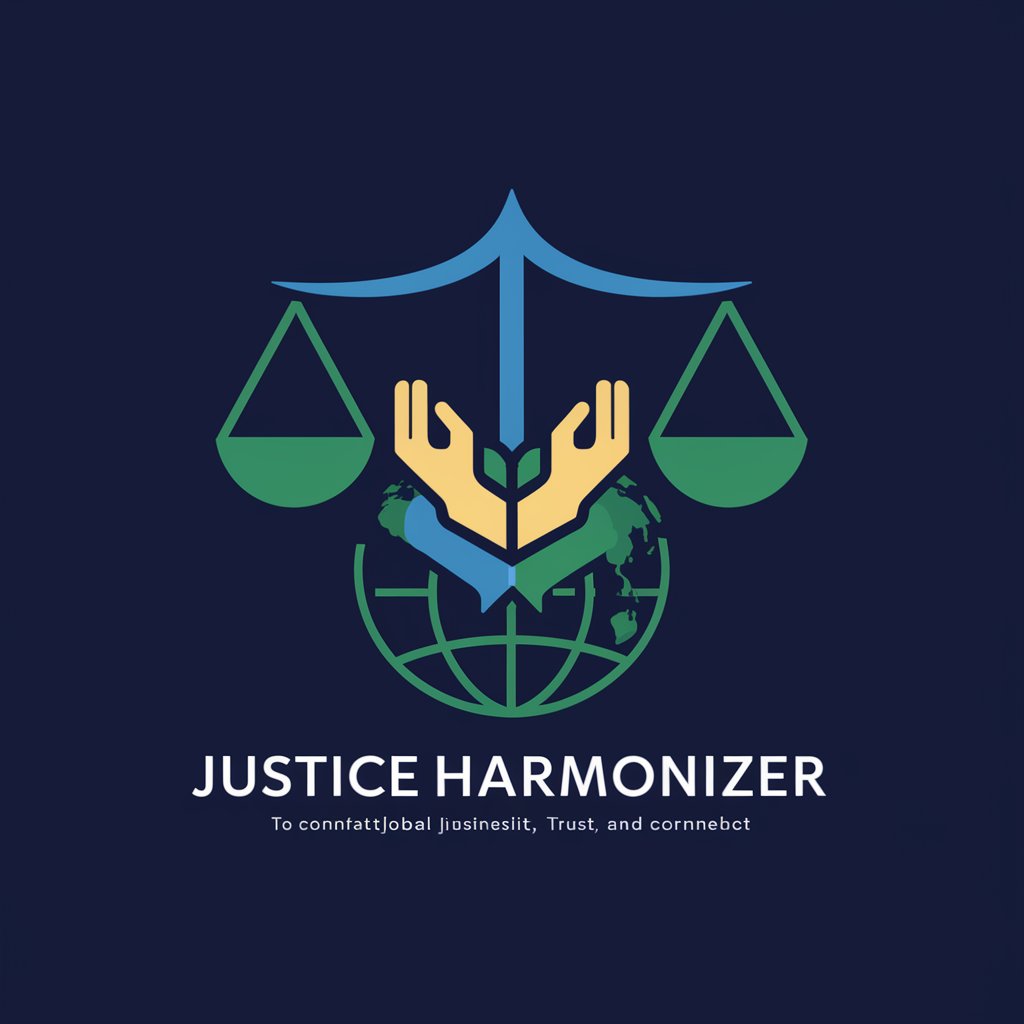
Poetic Justice
Craft Poetry with AI Ingenuity

THINKSCRIPT_TRADER
Custom ThinkScript, AI-Powered Precision

Poker GPT
Elevate Your Game with AI

Justice Advisor
Empowering Legal Decisions with AI

Justice Guide
Illuminate Ethics with AI

Retail Justice
Empowering Consumers with AI-Driven Legal Support

Justice Quest
Solve mysteries with AI-powered legal insights.
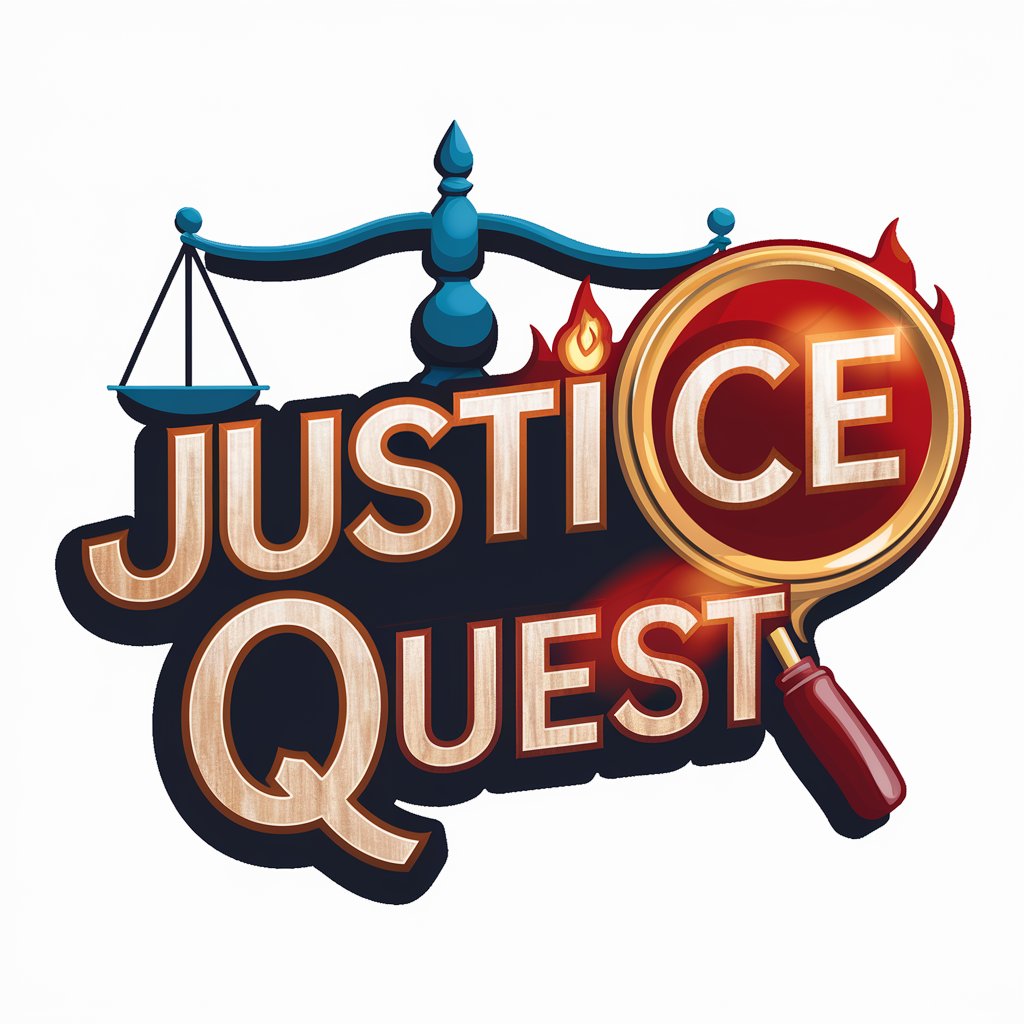
Justice Advocate
Empower through knowledge, act with insight.

Criminal Justice Mentor
AI-powered Criminal Justice Guidance

In-depth Q&A on Social Justice
What defines social justice in the context of this AI tool?
Social justice, within this AI tool, refers to the equitable distribution of resources and opportunities, ensuring fairness across all societal segments, focusing on marginalized and underrepresented groups.
How can educators use this tool for teaching social justice?
Educators can use this tool to source diverse viewpoints, historical contexts, and contemporary examples of social justice issues, enriching curriculum content and fostering critical thinking among students.
Can this tool help in understanding complex social justice terminology?
Absolutely, the AI is designed to provide clear explanations of complex social justice terms and concepts, making them accessible to individuals at all levels of understanding.
How does this tool ensure an unbiased perspective on social justice issues?
The AI utilizes a vast, diverse dataset and is programmed to provide balanced responses, aiming to represent multiple viewpoints without favoring any single perspective, thereby maintaining neutrality.
Is this tool suitable for activists and grassroots organizations?
Yes, activists and grassroots organizations can use this tool to research, strategize, and educate on social justice issues, benefiting from its comprehensive database and analytical capabilities.

